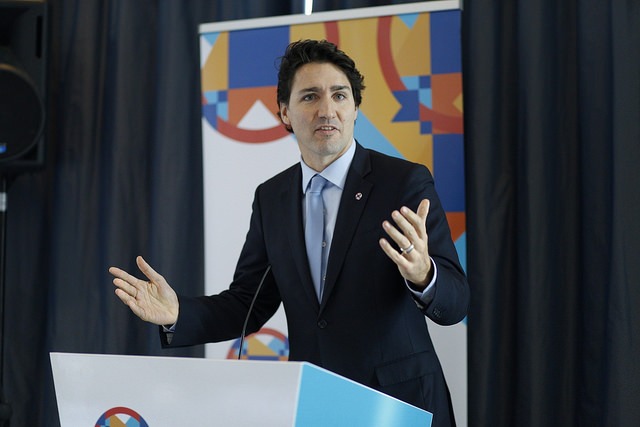 Examining Justin Trudeau’s election campaign, cabinet choices, courtship of the media and changes in foreign and domestic policy.
Examining Justin Trudeau’s election campaign, cabinet choices, courtship of the media and changes in foreign and domestic policy.
In November 2015, the heads of Commonwealth states met in Valetta, Malta. For Trudeau, this international debut was a vital opportunity to rehabilitate the self-induced isolation of Canada within the Commonwealth family after the spat between Secretary General Sharma and PM Harper over the location of the 2013 CHOGM in Sri Lanka. At the time, Harper argued that the CHOGM’s presence in Colombo effectively endorsed Sri Lanka’s inexcusable human rights record; he subsequently withdrew $20 million in discretionary funding from its Commonwealth contributions.
As Canada remains the second-highest Commonwealth contributor after Britain, the blow was a bitter one, followed by a two-year nadir in Canada–Commonwealth relations.
At Malta, however, Trudeau presented the face of renewal, and managed to score not once but twice.
First, chosen by his fellow heads of state to toast Her Majesty the Queen at the banquet concluding the first day of the conference, Trudeau deftly paid homage to the Queen’s ‘constant presence in the life of Canada since 1935’ (when she first appeared on a postage stamp), commending the monarch for having ‘seen more of Canada than almost any Canadian’.
Second, tuning in to Malta’s climate change leitmotif, Trudeau announced Canada’s sizeable contribution towards an international climate fund (comprising $2.65 billion over five years to help developing countries fight climate change).
As Canadian Commonwealth envoy Hugh Segal argues, in terms of goodness of fit, the new Canadian government and the Commonwealth are ideally suited.
The Canadian government is now interested in a different catalogue: ‘soft power—development, education, human rights, education and all those important priorities’, while the Commonwealth remains a fundamentally soft power organisation operating as ‘a non-military, soft-power organization with tremendous potential … [and] an important instrument for development and reflective of a kinder, gentler approach to foreign policy, which appears to be where this government is headed’.
Ironically, dynasty counts for much in both the Commonwealth and Canada. Pierre Trudeau himself began as a reluctant Commonwealth supporter. However, after hosting the second CHOGM in 1973, he not only ‘succeeded, ever so diplomatically, in taking a fusty, overly bureaucratic group by the scruff of the neck and shaking off its dust’ but transformed himself into an ardent Commonwealth champion in the process.
In this mode, Justin Trudeau could perhaps consider the impact of appointing a separate minister for the Commonwealth to balance the current minister for La Francophonie (Marie-Claude Bibeau).



